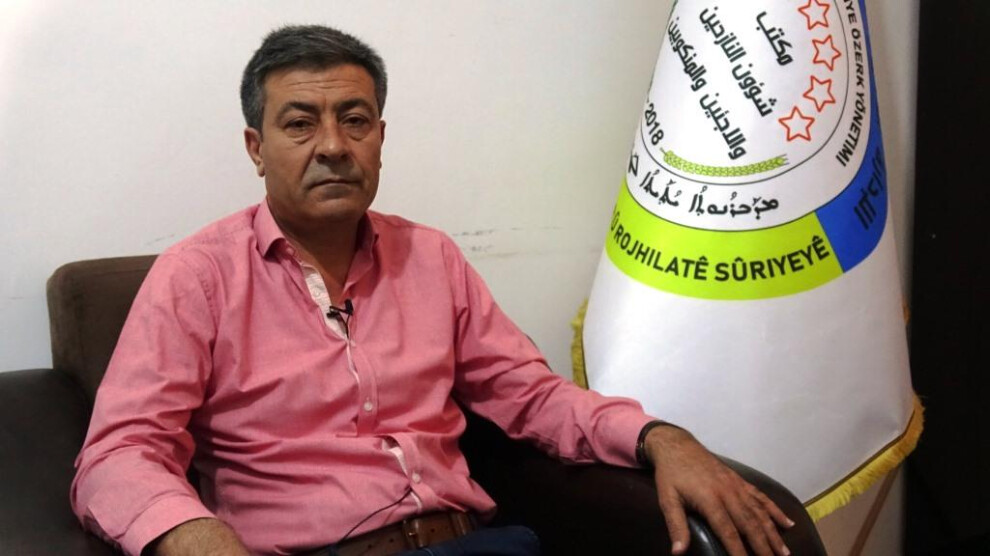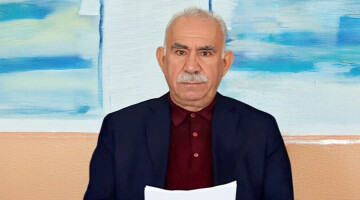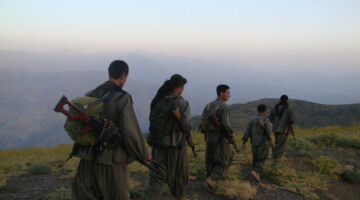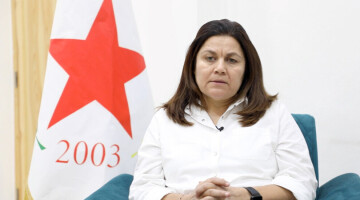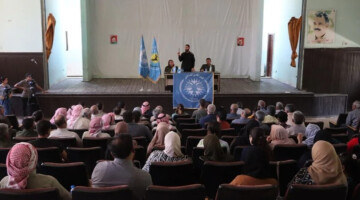Despite the repeated appeals by the Autonomous Administration of North and East Syria, the United Nations and affiliated institutions have failed to present a solution for the opening of Til Koçer Border Crossing. Due to blockage of humanitarian aid, hundreds of people living in the refugee camps in the region have been through hard times.
The co-chair of the Autonomous Administration North and East Syria Migrants and Refugees Bureau, Şexmus Ehmed, assessed the issue for ANHA, and spoke of a humanitarian crisis in the camps. He stated that the closure of the Til Koçer border crossing adversely affects millions of people living in North and East Syria, adding, “No humanitarian organisation has voiced reaction to the closure of the Til Koçer crossing. In such a period when Coronavirus cases are ever increasing in the region, people are experiencing hard times due to the closure of the border crossings. The situation is dire, especially in the camps.”
Even though the Autonomous Administration has taken serious measures against Coronavirus, it is not possible to carry out an effective struggle against the pandemic since even aid from the World Health Organisation (WHO) cannot access the region due to the closed border crossings, Şexmus Ehmed stressed.
Informing on the measures taken by the Migrants and Refugees Bureau, Ehmed recorded that they have established quarantine centers and conducted Covid-19 tests in the camps.
Ehmed remarked that international institutions ignore the Autonomous Administration territories in all respects, and continued, “Winter is coming, and challenging conditions are experienced in the camps already. Tents are not ready for the winter season. Gas and diesel-oil couldn’t be provided yet. We prepared a requirement list and we want to complete all the preparations before the winter.”
Indicating adverse consequences caused by the closure of Til Koçer Border Crossing, Şexmus Ehmed said, “The closure of the crossing was ordered by the UN Security Council. Russia and the Damascus government forced the UN to make this decision for the sake of the Turkish state’s interests. The closure of the Til Koçer Border Crossing, which was the lifeblood of the region, has adversely affected hundreds of thousands of people, especially those living in camps. Although the Autonomous Administration has made serious efforts to find alternative ways, the UN and humanitarian organisations did not meet the fundamental needs of migrants.”
Addressing the UN Security Council, the European Union and other international institutions, Ehmed called for pressure to be put on countries to repatriate their citizens living in the Hol Camp. He stressed that international institutions should support this repatriation process.
Şexmus Ehmed called for the opening of Til Koçer Border Crossing in order to prevent the escalation of the humanitarian crisis in the region.

